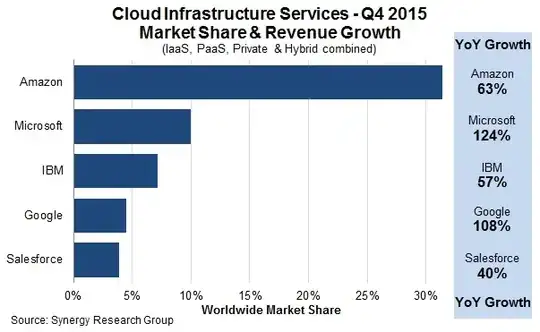As other answers have said, Google going away will ahve almost no impact on the Internet. It will have a very large impact on the Internet services people commonly use.
Other answers have already covered the big pieces, but one aspect that's been missed in a lot of the answers is the less-visible infrastructure services Google supplies. Most will be only a temporary disruption, but many mean a large and permanent loss of data.
You can log into many sites using your Google account. Suddenly, you can't. Recovery of that account will be almost impossible because your [email protected] is also gone. This also effects many Android and iOS apps and many devices.
Google hosts a lot of popular Javascript libraries like jQuery and AngularJS which web sites directly link to. When Google disappears, all those web sites will stop working or work at greatly reduced functionality. Fortunately, this is easy enough to fix by replacing the link with another library host, or your own local copy. A few days of web spread chaos on the web while this gets fixed, but it's a trivial fix.
Maps
Many sites and applications rely on Google Maps. For some it's non-critical functionality ("directions to my restaurant"). For others it's critical. There are plenty of other map services out there, but with different APIs. Changing the code to use them is fairly easy, but not trivial.
YouTube disappears
On the one hand it is a temporary disruption as there are plenty of other video services out there. More importantly is the loss of all the videos only on YouTube. The loss of artistic and cultural content will be very large.
Google's browser has about half the market share on all platforms, including smartphones. With Google gone, it will no longer be updated making it vulnerable to security problems in the short term.
While large portions of the browser are Open Source, much of it is not. A significant effort would have to be made to reconstruct the original code, and rebuild a development team. However, there's a question of whether that would be legal.
Fortunately, there are other browsers to step in and take Chrome's place.
Google Contacts, Drive, Docs, and Keep
There are other services which provide a similar product, but like with YouTube, all your documents in Contacts, Drive, Docs, and Keep are now gone. If you didn't have them locally mirrored, they're lost forever. Everything from slide shows to budgets are gone.
Android
Many people have stated that Android phones will become scrap. I don't believe this is true. All the basic functionality will still work: voice calls and text messages. All apps which have locally cached content should still work: contacts, calendar, even maps if you turn on local caching. Non-Google apps will continue to work fine... assuming they don't rely on Google Sign-In or Google APIs.
Alternative Android stores already exist. Android users and app providers can switch to using them. Critical apps like Maps, Contacts, and Calendar will have to be updated or replaced to use working APIs.
Android itself, like Chrome, is mostly Open Source. But there's critical pieces which are not. However, there are already Open Source versions of Android ready to go, such as CyanogenMod.
Google Voice
Anyone using Google Voice probably just lost their ability to make and receive calls and texts, since that is all routed through Google. They also lost all their text and voice mail archives probably forever.
Fortunately, they should be able to transfer their number to a new provider. It might take some time if Google truly disappeared to get the number unlocked.

what if energy stopped workingandwhat if the internet disappearedwere great questions and not closed, what's the difference to those two questions? – tkausl Jun 16 '16 at 14:28That being said, all of these are replaceable.
– TLW Jun 17 '16 at 01:14suddenly disappeared, every server owned by Google shuts down, there'd be both short- and long-term consequences. What types of effects are you questioning? See Enron Is Proving Costly to Economy or Consequences of the ENRON Scandal. But for this, were there any predictors? And are explanations forthcoming? Conspiracy theorists will go wild. Economic confidence in any tech/business? – user2338816 Jun 20 '16 at 05:09